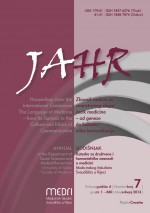Informirani pristanak: komunikacija između liječnika i bolesnika
Keywords:
informirani pristanak, komunikacija liječnik – bolesnik, pravni okvirAbstract
This paper addresses the question of informed consent, as reflection of fundamental changing in doctor-patient relationship. Focus of the paper is actually the information in informed con-sent, which is the most problematic aspect of informed consent, since the amount of informa-tion and the manner in which the information will be transferred to patient are not yet legally regulated in the most of countries, not even in serbia. In burdened health care systems that suppose a small amount of time to each patient, least amount of time is left for informing and conversation. Therefore, it is necessary to pay attention to educating and enlightenment of physicians and patients in terms of importance of communication in doctor-patient relation-ship, as communication is considered to be crucial element of informed consent. considering that serbian legislator is binding upon providing only information regarding patient’s refus-ing of medical care, but providing all other information that are addressing patient’s right to self-determination and autonomy leaves to physician’s assessment, it is a question how is actually concept of informed consent applying in medical practice.
Downloads
Published
Issue
Section
License
Authors who publish with this journal agree to the following terms:
- Authors retain copyright and grant the journal right of first publication with the work simultaneously licensed under a Creative Commons Attribution License that allows others to share the work with an acknowledgement of the work's authorship and initial publication in this journal.
- Authors are able to enter into separate, additional contractual arrangements for the non-exclusive distribution of the journal's published version of the work (e.g., post it to an institutional repository or publish it in a book), with an acknowledgement of its initial publication in this journal.
- Authors are permitted and encouraged to post their work online (e.g., in institutional repositories or on their website) prior to and during the submission process, as it can lead to productive exchanges, as well as earlier and greater citation of published work (See The Effect of Open Access).



